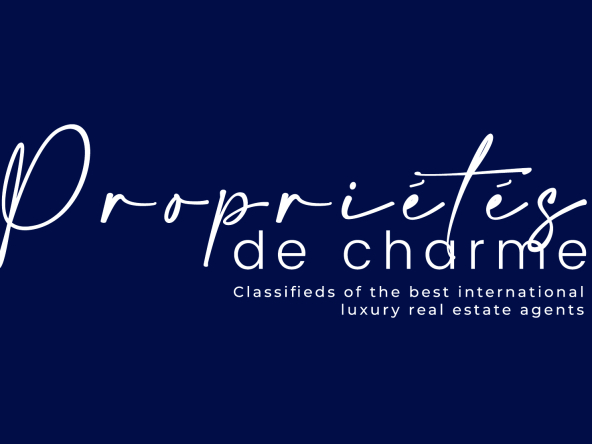Luxury Real Estate: Optimal Collaboration between Agency, Negotiators, Notary and Clerk
In luxury real estate, a successful transaction hinges on exemplary coordination between the agency, the negotiators, the notary, and their clerk. The latter, often the first operational point of contact, ensures meticulous file management and streamlines each step. The sale of a high-end property involves significant legal, financial, and estate planning implications; therefore, synergy among professionals is essential.
This guide is aimed at agencies, agents and notarial offices wishing to structure or improve their collaboration to optimize the sale of prestigious properties and strengthen customer confidence.
1. The central role of the real estate agency in luxury
1.1 Accurate evaluation and valuation of the property
A reliable valuation is essential in the premium segment. Criteria to analyze include:
- the location (view, neighborhood, accessibility);
- architectural features and noble materials;
- high-end equipment (home automation, swimming pool, spa, gym, wine cellar);
- the scarcity of the property and recent comparables;
- the attractiveness of the sector (historic city centers, coastline, vineyards…).
1.2 Creating a high-end marketing strategy
To reach a demanding clientele, professional photos, high-quality videos, drone footage, compelling storytelling about the property, and distribution on specialized international platforms are essential. Search engine optimization (SEO) for the listing and the agency's website increases visibility to qualified buyers.
1.3 Relationship management and negotiations
- organize private and discreet visits;
- mastering subtle negotiation by taking into account the emotional and financial dimensions;
- assisting foreign clients with their specific procedures (taxation, residence, financing);
- coordinate the stakeholders: lawyers, wealth management advisors, bankers and notaries.
2. The notary and his clerk: legal and operational pillars
2.1 Major role of the notary
The notary guarantees the legal security of the transaction: verification of ownership, absence of disputes, control of easements, drafting of authentic deeds including clauses specific to luxury properties, and secure management of financial flows. They also provide personalized legal and tax advice tailored to the specific needs of the estate.
2.2 The notary's clerk: the agency's privileged contact
Often underestimated, the clerk plays a central operational role:
- coordination of the file and administrative management;
- first point of contact between the agency and the study;
- collection and verification of documents, scheduling of signatures;
- monitoring of deadlines and reduction of the risk of blockages.
3. The synergy between agency, negotiators and notary office
3.1 Smooth transmission of information
Once the preliminary sales agreement is signed, the agency must forward the following to the clerk:
- mandatory technical diagnostics;
- plans, permits, administrative documents;
- contractual information (conditions precedent, payment terms);
- the financial and supporting documents of the parties if necessary.
3.2 Joint management of specific clauses
The agency collaborates with the notary to integrate suitable clauses into the agreement: conditions precedent for financing, obtaining authorizations, mentions relating to listed monuments, special easements or pre-emption rights.
3.3 Monitoring deadlines and planning
The clerk and the negotiators jointly ensure compliance with legal and contractual deadlines, anticipate the steps (visits, financing procedures, signatures) and regularly inform the client to guarantee transparency and trust.
4. Practical tips for optimizing collaboration
4.1 Establish proactive and regular communication
Establishing weekly follow-up points, sharing documents in real time via secure spaces and maintaining traceability of exchanges reduces errors and accelerates the process.
4.2 Involve the clerk from the start of the transaction
- present the complete file to the clerk before signing the preliminary agreement;
- to rely on its expertise to anticipate legal difficulties;
- avoid last-minute back-and-forths that delay the signing.
4.3 Train negotiators in basic legal aspects
- to know the key concepts of authentic acts and specific clauses;
- to be able to quickly identify the necessary documents;
- prepare complete files to limit additional requests from the notary.
5. Operational checklist for agencies and negotiators
| Stage | Action | Responsible | Recommended timeframe |
|---|---|---|---|
| Identification of the property | Collection of technical and administrative documents | Agency / negotiator | Before the promise |
| Transmission to the clerk | Sending the complete file (diagnostics, plans) | Agency | Immediately after promise |
| Coordination clauses | Review and validation of specific clauses | Notary / Clerk | Upon receipt of the file |
| Monitoring deadlines | Planning of key stages (financing, signing) | Clerk / negotiator | Continuous |
| Customer information | Regular communication on progress | Negotiator | At every step |
| Signature preparation | Collection of final documents and funds | Clerk / agency | Before the act |
In luxury real estate, coordination between agencies, negotiators, notaries, and clerks is not a mere detail: it's a prerequisite for success. By applying these best practices, professionals guarantee secure, smooth, and satisfactory transactions for a demanding clientele.
For agencies and negotiators, leveraging the partnership with the clerk and the notary's office is a powerful lever to optimize performance, reduce delays and strengthen the image of seriousness with sellers and buyers of prestigious properties.
Written by Propriétés De Charme — a portal dedicated to luxury properties.


